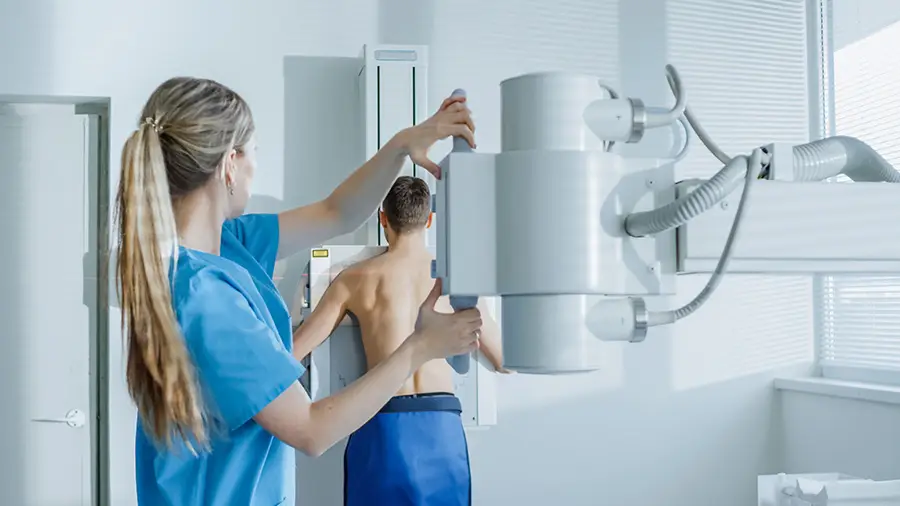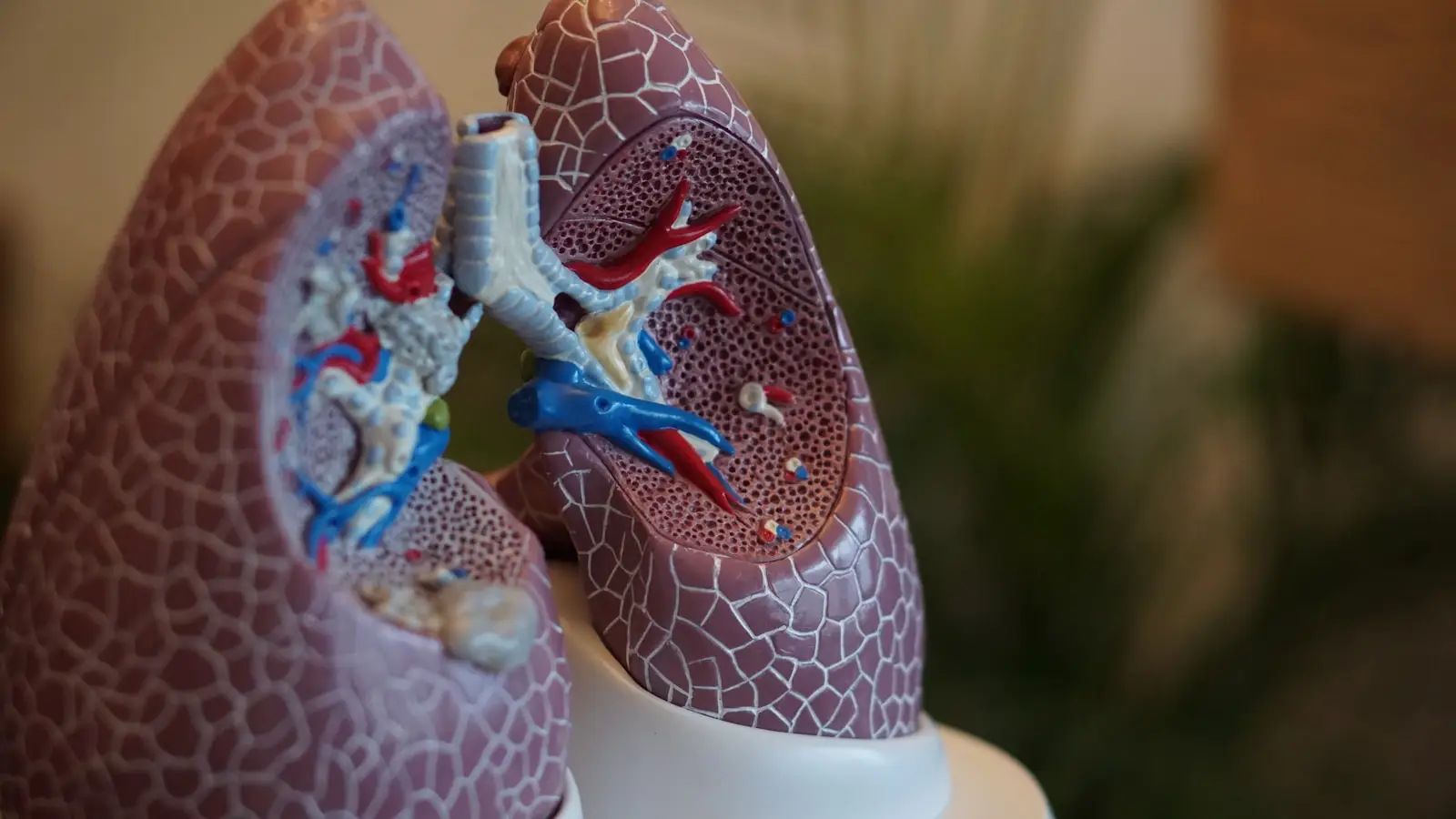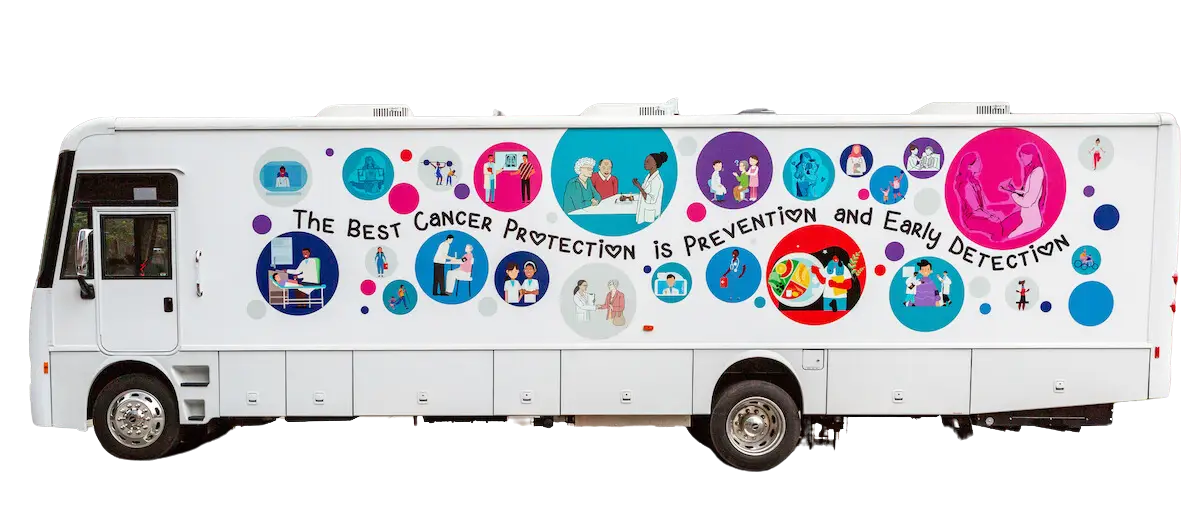Education: Lung Cancer
Computed Tomography (CT) Scans for Lung Cancer
A low-dose computed tomography (CT) scan has been proven to be effective in identifying lung cancer when it is most treatable.
Utilizing a combination of x-ray techniques and computer technology, low-dose CT scans produce high quality images while reducing radiation dose. Radiologists customize each CT scan to each patient, following low-dose radiation protocols to reduce radiation exposure by as much as 50 to 80 percent. The CT scanner uses an x-ray source similar to that used to obtain ordinary chest x-rays, however, the x-ray beam is so tightly focused that portions of the body outside of the scanned region get relatively little x-ray exposure.


The low-dose scan takes less than 60 seconds to complete
Patients who are eligible and decide to get screened have a better chance of detecting lung cancer at an earlier and more treatable stage. Generally, by the time lung cancer signs and symptoms are noticeable, the cancer is usually at a very late stage. Detecting it early gives patients a chance for better outcomes.
DID YOU KNOW?
ScreenNJ Screening Statistics
the Garden State
findings detected
Why Should You Get Screened?
One in two men and one in three women will develop cancer in their lifetime
Early diagnosis of cancer offers the best chance for successful treatment. When cancer care is delayed or inaccessible there is a lower chance of survival, greater problems associated with treatment, and higher costs of care.
Visit our Education page to learn more about various cancer types and screening options.
Types of Screenings Available:
- Breast Cancer
- Cervical Cancer
- HPV-Related Cancers
- Colorectal Cancer
- Genetically-Linked Cancers
- Lung Cancer
- Prostate Cancer
- Skin Cancer
Get the Assistance you need
Learn More About Patient Navigation
Patient navigators are trained, culturally competent healthcare professionals who work with patients, families, physicians and other healthcare providers to ensure cancer patients’ needs are appropriately and effectively addressed.
Get connected to a navigator to gain assistance with qualification, scheduling, transportation, and more.
Discover our mobile health unit
Free Cancer Screenings and Care Coordination for the uninsured and under-served across New Jersey
Now Offering:
- Patient navigation for care coordination
- Education and outreach
- Supportive services to address social determinants of health
- History and physical examinations
- Laboratory testing
- Referrals and authorizations


Who Qualifies for Screening?
The New Jersey Cancer Education and Early Detection Screening Program (NJCEED) is part of the New Jersey Department of Health.
NJCEED provides comprehensive screening services for breast, cervical, prostate, and colorectal cancer. The services include education, outreach, early detection, case management, screening, tracking, and follow-up. Breast, cervical, prostate, and colorectal cancers can be treated more effectively when found early.
Persons eligible for these services must be at or below 250% of the Federal Poverty Level and be uninsured or under-insured. For more information, please call 1-800-328-3838 or locate a screening location here.
Screening for cancer is covered with no deductible or co-pay by many insurance plans including Medicare, and patients with no insurance may be able to receive recommended cancer screenings at their NJ CEED agency or at other ScreenNJ partner sites. Visit our Frequently Asked Questions page to learn more.
